Community radio chaos in St. Louis: On the self-immolation of KDHX
Discussed: FM radio, music, St. Louis, wealthy benefactors, KDHX, KCRW, KEXP, WFMU, KPFK, KOPN, volunteerism, rituals, Sovereign Glory, ego, purpose, Grand Center, South City
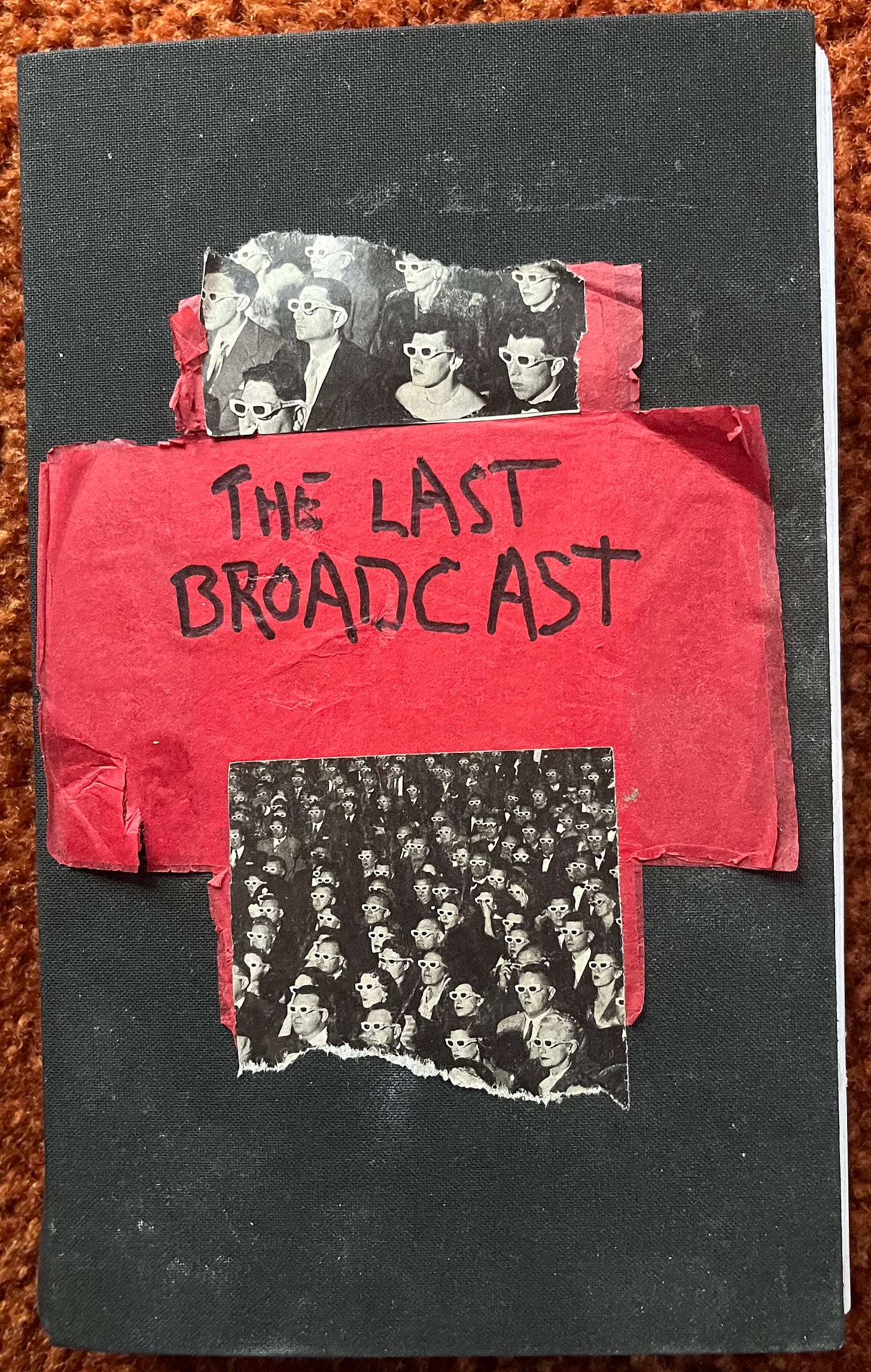
Few organizations are as prone to chaos as nonprofit community radio, where volunteerism, community and music worship collide head-on with ego, self-interest and aesthetics virtually every three hours. That’s occurring (again) in St. Louis right now, where left of the dial station KDHX, which is block-programmed by volunteer DJs with weekly shows, WFMU-style, has fired more than a dozen great disc jockeys, all of whom at one point or another spoke out against the firing of another veteran DJ. If you’re reading this from St. Louis and are on Facebook, you likely know the story.
It’s gotten ugly, confusing and sad. A litigation-worthy agist employment listing for volunteer DJs “under age 40.” Talks of a strike (even though the DJs aren’t unionized). Words like “scab” being used to malign DJs who haven’t amply protested management decisions. Mass resignations. Dead air. Songs with f-bombs airing, violating FCC guidelines.
“I need a really good cry right now,” Al Swacker, host of the killer garage rock/rockabilly show Greaser’s Lunchbox, wrote on Facebook after he resigned this week.
“You don't even consider the ripple effect. Imagine the spouses, the families of the volunteers that you've just clipped,” reggae DJ Ital K said over the air as he resigned last week. “What you've done, you've affected the people that listen and love this radio station here. That's what you've done. Is it worth it?”
This St. Louis Post-Dispatch’s lede captures the gist of said management’s ham-handed efforts at “remaking” the station.
Community radio station KDHX, which for 35 years has prided itself on playing the kind of music otherwise not heard on the airwaves, fired 10 of its DJs on Friday.
Another 12 DJs will have to undergo “mediated discussions” to stay on the job.
One show host resigned on the air Friday evening in protest and another indicated in a Facebook post that he would soon follow suit.
“We have to be more open to different voices,” said Gary Pierson, president of the KDHX Community Media Board of Directors. “We have to make sure we’re not allowing the most well-known or the loudest voices to be the only ones people hear.”
(It’s worth noting that a successful radio station is nothing without well-known, often loud voices. What’s the alternative? A roster of anonymous whisperers?)
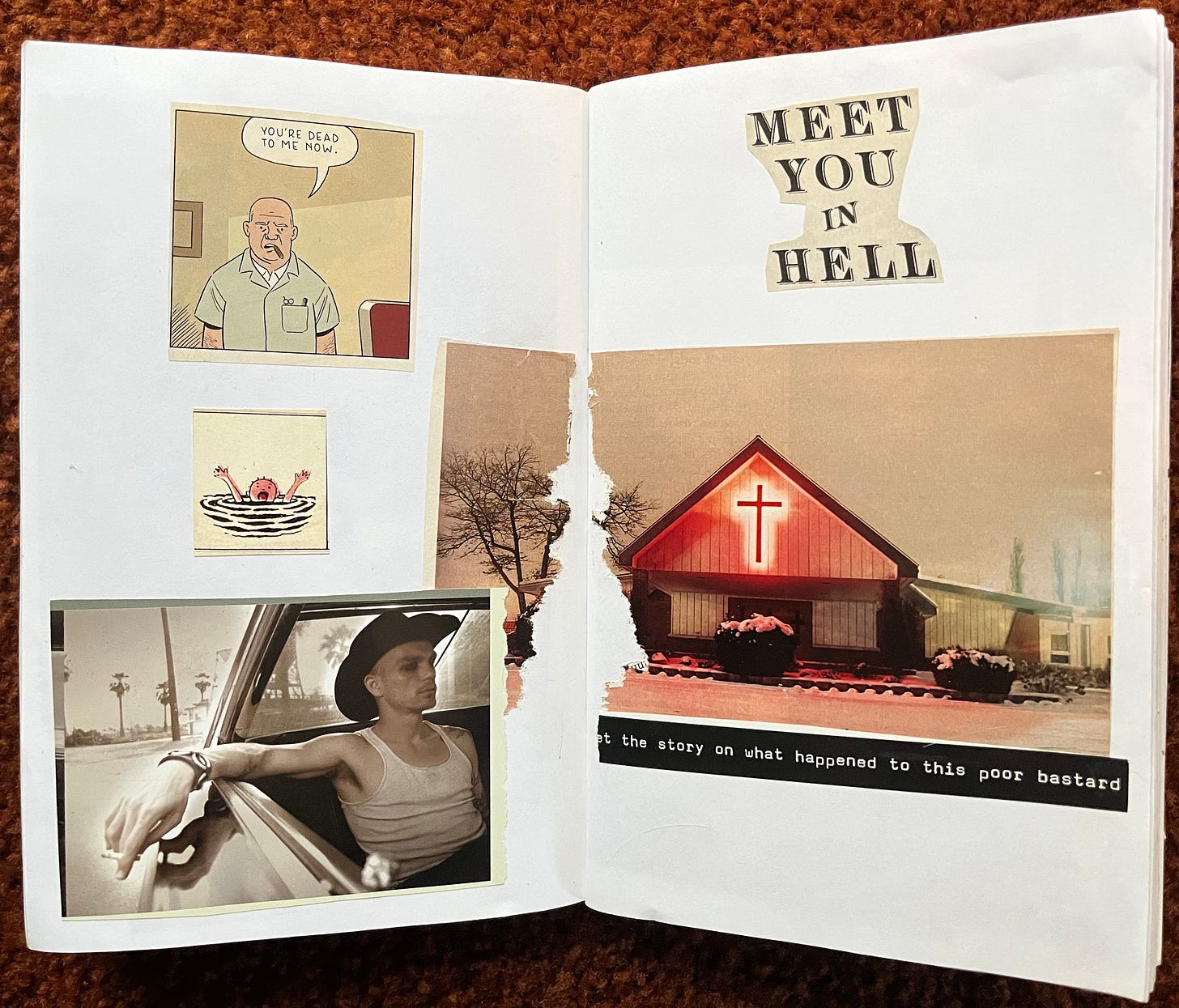
On Friday, Back Country host Jeff Corbin quit his show a day before he was supposed to pitch for the pledge drive. He wrote a farewell that offered a chronology. It read, in part:
First, they came for Tom Ray. A 35-year volunteer who co-signed the original loan to help establish KDHX. Kelly Wells, Executive Director and Gary Pierson, current Board President. then came for Andy Coco and Drea Stein, 20 and 28-year volunteers at the station. Then they came for ten more DJs in last week’s Friday Night Massacre. Roughly another 250 or so combined years of KDHX volunteering. All of those dismissed—with the exception of Tom Ray—were signatories to a letter expressing no-confidence in Wells and Pierson’s BOD precipitated by Tom Ray’s dismissal. Now they are coming for the “Dirty Dozen”, me included, who must attend mediation (read woodshedding) in order to keep doing our shows. Several other DJs have left in sympathy and support of all the others, whether they have stayed or left.
Also on Friday, writer-DJ Steve Pick quit with an epic three-hour show whose theme became obvious during the opening measures of the first song: Dylan’s “Ballad of a Thin Man.” He annotated his online playlist accordingly, dedicating songs to DJs who’d been cut or quit. He ended his run with the show’s namesake song, Elvis Costello’s “Radio Radio.” His annotion: “The song that made me want to do something positive with radio. Never thought it would end up being appropriate for KDHX.”
I had shows on KDHX for more than 15 years and only quit because I left St. Louis: Electricity Respect, the Grand Tour and Sovereign Glory. Each was a joy and I’d probably still be doing a show had I not bailed. Maybe I would have been fired last week too. If so, I’d certainly be having an identity crisis right now. Being a radio DJ, even a volunteer one, isn’t just a two- or three-hour gig. It’s a way of listening. It’s a private ritual. It’s a means of interacting with music to create experiences that, at their best, rewire listeners’ brains — or at least takes their mind off of more pressing matters.
KDHX isn’t an NPR or Pacifica affiliate, and is beholden to no one except the FCC and its donor base. For a community station, it’s got a huge broadcast range, and a potential listenership of nearly 2.5 million people. It apparently isn’t beholden to its volunteer DJs, the majority of whom only “volunteer” by, in part, feeding their musical obsessions on the air, in the process elbowing their way into a position of cultural authority within a relatively insular town. I say that as someone who fed his ego and obsession through his radio shows as part of a drive to gain attention and elbow my way somewhere, to say nothing of it feeding some deeply held insecurity. But mostly I, like everyone else, did it because live radio is a blast.
I know little about KDHX’s donor base anymore, but I know that until recently, the station hadn’t had those one or two major donors who ensured that the bills got paid and the staff was happy, and apparently didn’t secure a pre-crypto-collapse Jack Dorsey check when the getting was good. As with most media outlets big and small these days, the most prominent are usually in that position due to the largesse of a rich benefactor. Five years ago KEXP made news for a $10 million donation from “an anonymous donor, identified as ‘Suzanne.’”
Initial investments planned for the funds include “education programs aimed at inspiring younger audiences to engage their curiosity around music, services and programming for emerging artists, media creation experiences for aspiring DJs and music journalists, and outreach activities aimed at deepening KEXP’s connections to local communities.”
That arrived more than a decade after Microsoft billionaire Paul Allen, who “was an ardent music fan and he was a particular champion of Pacific Northwest artists,” opened his wallet.
“Before Paul got involved with KEXP, we had two full-time staff, and his commitment to venture philanthropy enabled us to go to get to a $2 million dollar level in just three years and we’ve been in the black ever since,” said Thomas Mara, executive director of KEXP.
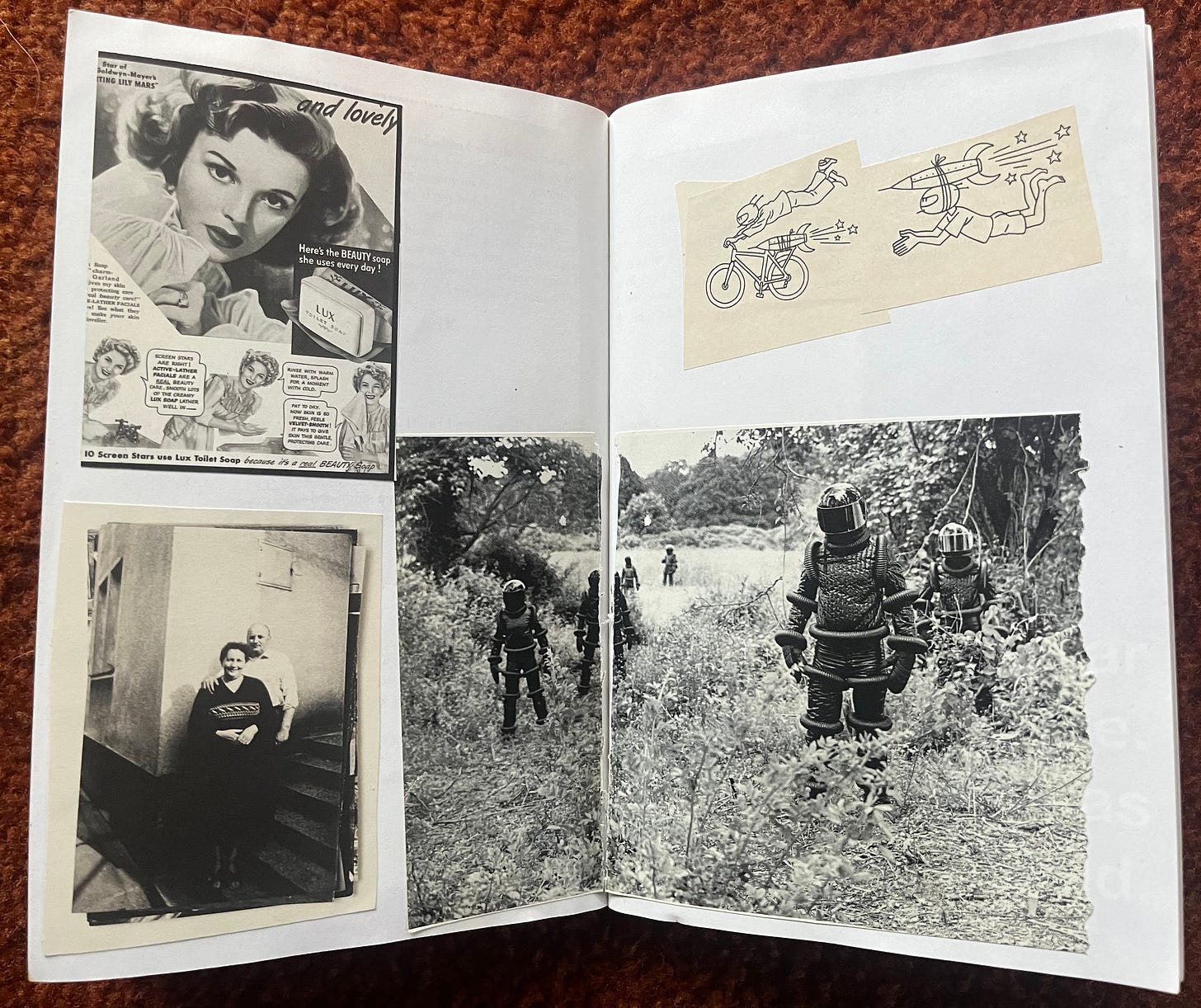
KCRW in Los Angeles? I could tell you stories about alleged behind-the-scenes goings on there that would make news. What is known is that a few years ago their on-air talent unionized. That didn’t stop management from eliminating overnight DJs and switching to a shuffle-play format for the hours midnight to 6 am. The KDHX DJs could have unionized. Now it’s too late. (I’m not sure it would have helped.)
Two years ago KCRW freelance reporter Cerise Castle let loose on the station’s management for its lack of diversity. “They’ve got Black ideas, and they’re making them without any Black people,” she said on “LA Podcast.” I wrote about the incident for the LA Times. KCRW’s management lacked diversity, and it seemed to some that they hid behind its DJs of color as a way to fend off criticism.
Not long after, another former Black producer at KCRW backed Castle’s assertions in a Twitter thread. “I wanna start out by saying believe @cerisecastle. Without hesitation,” he wrote. The resulting fallout made the news, but with little to show for it.
Stations like KDHX in midsized cities, with or without major donors, are doomed to regularly undergo upheavals, both generational and tech-driven. The ones with major donors face the possibility of becoming so reliant on them that fear drives every decision, and kowtowing ensues. What happens when the benefactor dies, or becomes frustrated with lack of progress? The stations without major donors are looking at a future in which FM radio fades into further irrelevance, listenership keeps falling, and with it, the reach to expand fundraising opportunities. There’s no perfect formula. The one that KDHX’s GM inherited wasn’t — and doesn't seem to be currently — working. The major donors, I’m assuming, understand this.
It’s very old news but bears repeating: Terrestrial radio listenership has plummeted – Bluetooth killed the radio star – and stations like KDHX haven’t successfully drawn online donors of equal value to captives who listened to FM during drive-time. The math doesn’t add up, especially with the overhead costs KDHX assumed when it left its converted 2-family on Magnolia. How many times have you jumped to SiriusXM, stuck in a CD or connected to Bluetooth when a KDHX DJ started played stuff you didn’t like? Or tuned out during pledge drives?
I’ve read just enough audited financial statements to be dangerous, but surveying KDHX’s 21-22 disclosures are instructive: the station owes a lot of money for its property and land at its Grand Center location, and it had less in the bank last year than it did the year before.
Further complicating the KDHX equation is block programming, which is a tough beast to control and really can’t exist as a format without volunteer DJs. It’s hard to get days to flow without a predictable format.
“I’m a big believer in the power of music programming to build radio audience,” then-KCRW program director and DJ Jason Bentley told me in 2019 when asked about his programming philosophy.
The goal, Bentley told me, was to build KCRW’s role as “a vital part of the indie music ecosystem. It allows us to be part of a bigger conversation, rather than exclusive and elitist.” Is KDHX exclusive and elitist? Hardly. But it can be an echo chamber.
The patchwork programming approach is confusing for new listeners, especially considering those under 40 have never known a world in which listening to music was tied to the date and time when their favorite shows would air. I like to think that my KDHX shows were “popular,” but on a good night that may have meant 1,000 listeners. Even typing that runs the risk of overstating my impact; for all I know there were 12.
This Onion story hits a little close to home:
I was very involved in KDHX when it was in South City, and a lot of people romanticize what for me in the 1990s and early ‘00s seemed like a slapdash operation that mostly benefited the five or six full-timers lucky enough to latch onto teat of community radio employment. Its drive-time afternoon programming blocks mostly featured a roster of “blues mafia”-adjacent white men playing Black roots music, some of whom spoke on the air with an affected jive patois straight from a Saturday Night Live skit. Its morning show could often be cringe-worthy.
But that’s block programming for you. You never know what you’ll get, unless your entire world is KDHX, in which case you have no distance from the problems — and are probably a DJ. The upside of block programming was (I use the past tense because these days I only tune to KDHX when I’m visiting) the ability to hear journalist/gadfly D.J. Wilson discuss regional news, and remarkable shows from Rene Spencer Saller, Tim Rakel, Needles aka James Biko, Darren Snow, Doug Morgan, G-Wiz, Andrea Dunn, Josh Weinstein, Roy Kasten, Jeff Hess, Steve Pick, Paul Jové, the late, great Wes “DJ Solo” Allmond, Tom Ray, Gabriel — and too many more to mention. John Uhlemann’s Music from the Hills is a national treasure.
What’s the option now? Donate to KDHX and enable an overpaid community radio administrator with an apparent willingness to burn shit down and slander well-intentioned St. Louisians whose only crime was using their microphone to speak out against Tom Ray’s — and a cascading bunch of others’ — dismissal? (Disclosures: Tom is a longtime friend and my former Vintage Vinyl boss. I am also friends with a handful of DJs who were fired and/or resigned last week.)
How the mass firings and the self-inflicted PR disaster will affect future donations and grants is anybody’s guess, but there is no upside to this — unless this was a pull-the-Band-Aid-off moment and some master plan arrives to make sense of this. But even then, how can you make sense of doing this right before pledge drive? You do something like this — well, you don't ever, but — halfway between the fall and spring pledge drives in the hopes that you can win the bigger argument or silence the critics in time for the next go-round. Unless management has determined that pledge drives in 2023 are for suckers, and the “successful” stations only fish for the sharks.
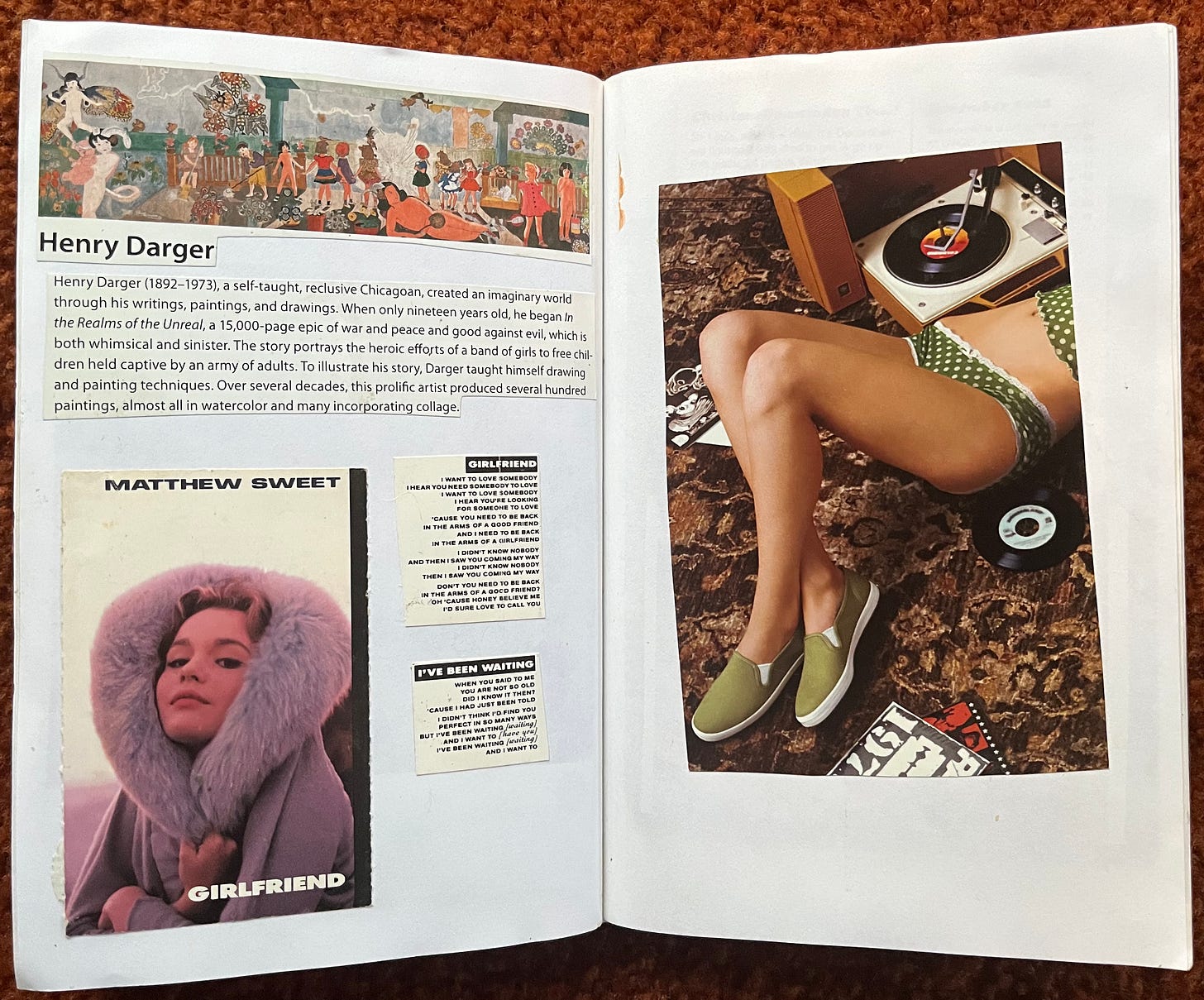
Regardless of whose “side” you’re on — it’s impossible to side against the loss of such crucial St. Louis voices — it’s accurate to say that, as with any long-running institution with a devoted base but little on-air turnover, a lot of shaking-hands-with-themselves has been going on among some of the more brittle and encased members of this community, people driven by the ego boost instead of volunteerism. People whose identities are tied up in those shows to a degree that leaves a gaping void in their week-to-week lives when said shows vanish.
From the management’s perspective, though, what choice did they have but to act, at least at the beginning? Not to defend the indefensible, but the dismissed DJs who spoke out on air against management were, to be blunt, shitting where they lived, and doing so minus a unified front. It’s a gamble, going on record or air talking bad about the organization that’s providing the platform without running the risk of losing access to it.
Still, there is nothing stopping those who were fired from immediately setting aside time to create two-hour Mixcloud radio shows. They could schedule them to go live at the same time as their old KDHX slots. There’s also nothing stopping those same DJs from organizing and setting up Patreons so that the many outraged Facebook commenters can put their money where their posts are and support these DJs, money which would allow them to set up a mini-studio somewhere (maybe on Magnolia)?
After all, uploading a two-hour mix pays the same as DJing on KDHX. The barrier to entry is lower than it has ever been. The only way a community such as this ceases to exist is if its members allow themselves to be silenced or separated.
In fact, I urge the fired DJs to head to Mixcloud. Not just for their listeners, but for themselves. Call the new project XHDK MF or something. Continuing the weekly radio ritual while it’s still in your system is worth it because if you fall out of it, your time will likely be eaten up doing something less gratifying. Believe me, I know.
Here’s a diversion that I’ll end with.
A few years after I arrived in Los Angeles in ‘07, my experience at KDHX and connections from LA Weekly presented me with the opportunity to make a pretty wild left-of-the-dial leap. On way too short notice, Jason Bentley texted me to see if I could fill in for Henry Rollins and do his brilliant KCRW show.
I hadn’t yet been trained to sub on KCRW, but Jason and I had spoken about me doing so. Regardless, I assured him that, with the engineer (Engineer X) present, I had the experience to fill in for Henry. And with so many on-air hours in St. Louis, I had a right to be confident. Still, this was a major slot. Sunday evening. Subbing for Hammering Hank to play two hours of punk, noise and electricity to what he calls his “fanatics.”
I spent the next twelve hours pulling records — only to be informed upon arrival that the turntables were out of commission. (Henry has since apologized to me for this, even if it wasn’t his fault.) Panicked, I cobbled together a set from CDs and iTunes on the fly. In hindsight, it wasn’t a bad bunch of songs. But at one point during the show, iTunes crashed on me and I didn’t have a backup track queued. There was at least 15 seconds of dead air — in the second largest radio market in the country. In the heat of the moment, I also failed to address Henry’s listeners as “fanatics” one single time. It was kind of a disaster.
I never DJed on the station again. I still miss the ritual.





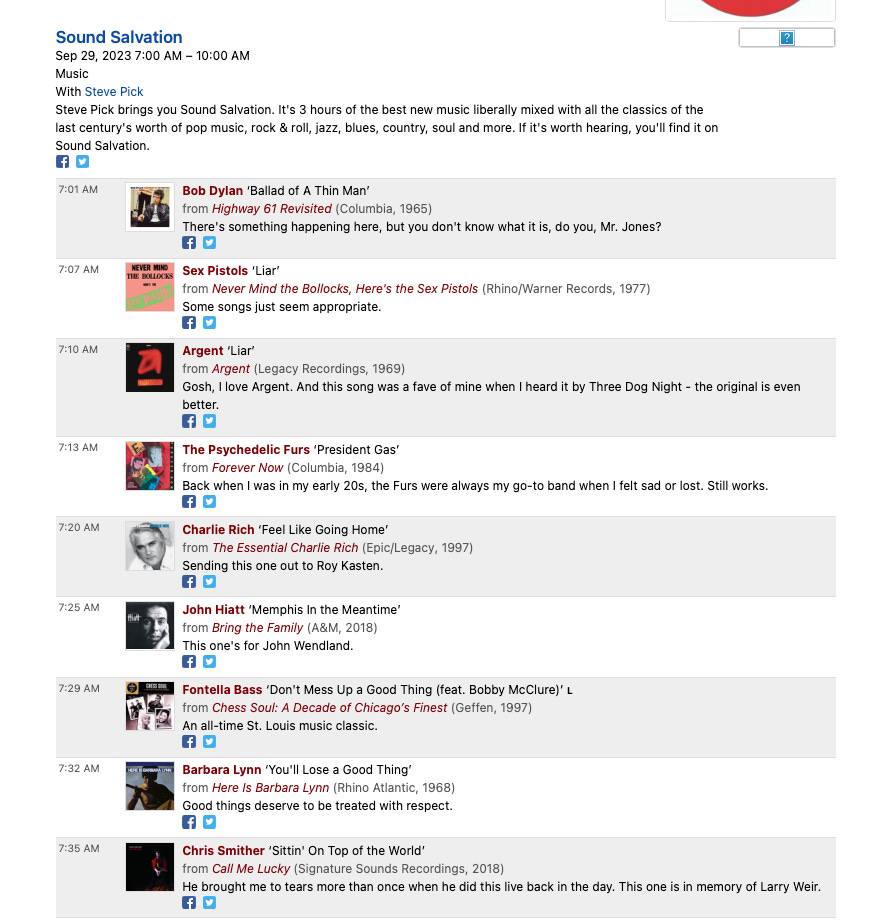
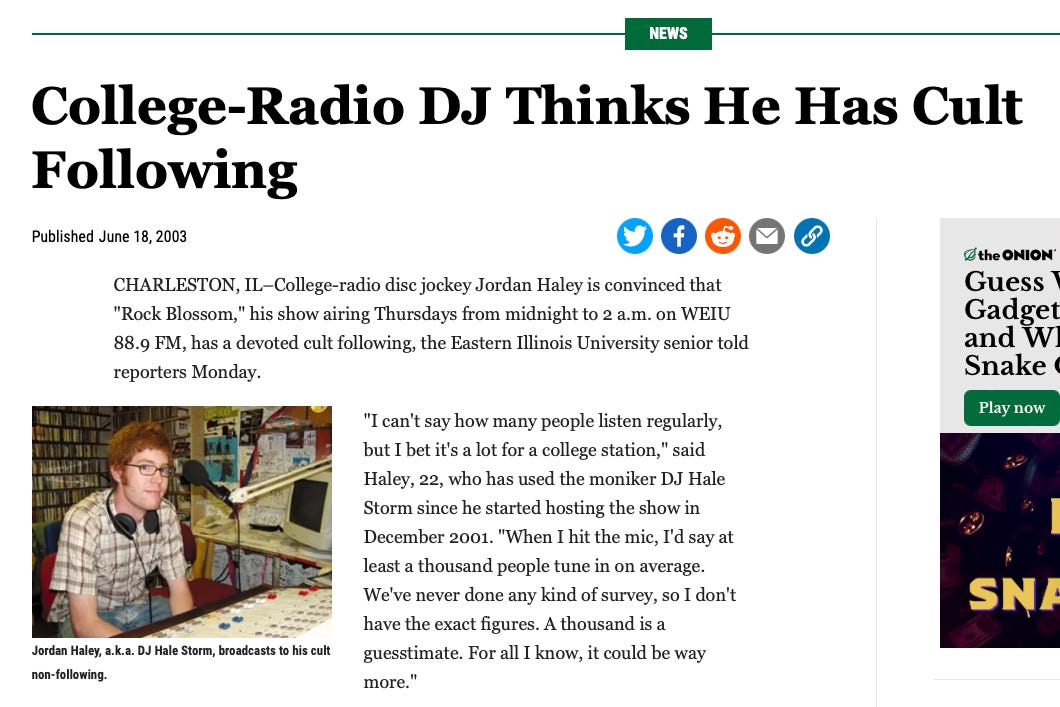
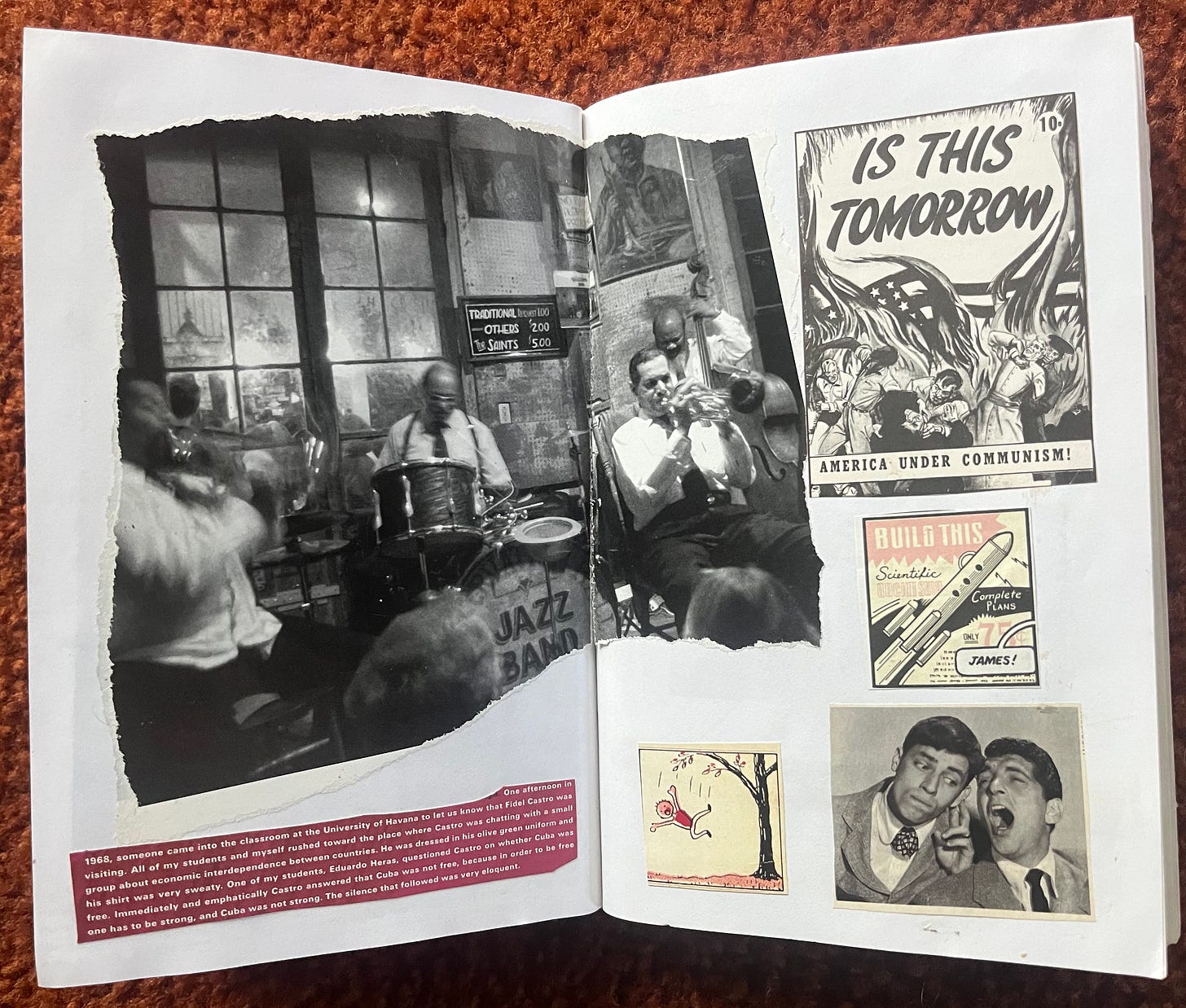
It still astonishes me that decades of community goodwill could be destroyed in a few short years. I knew they must have had their heads up their asses when they fired Paul Stark--GRANDFATHER STARK!--who helped remotely rear thousands of St. Louis children and who was a beloved fixture in the child-music scene (I know I am not using the right lingo, but I don't have children so I can't be expected to learn their musical subgenres). As Xian said, "That's like firing Mr. Rogers."
Another point I keep coming back to is, "How did this happen?" I think it happened because the Board rewrote all the bylaws we used to observe back when I served on the Board, lo these many years. Back then we had real checks and balances. The current ED and her selected cronies on the board reduced the power of the advisory committee and the programming committee, and they also significantly neutered the Associate Members. The removal of checks and balances works out just great for neoliberal PMC administrators who don't think community radio ought to be democratic. They are making a lot of money while failing upward.
Personally, I think community radio that does not depend more on individual donors than it does on the largess of a few local richies is already a contradiction in terms. If the only way for it to survive is to listen to a bunch of other grifting PMC consultants who are magically endowed with the power of telling the ED and Board President what they want to hear, well then it might as well die, I suppose. It makes me sad, though. I want other St. Louisans to have the opportunities we had.
You had to pull out the Bob Reuter book, didn’t you?
As if I wasn’t broken up enough already.
I guess you had to, though. It would have been lying by omission not to.